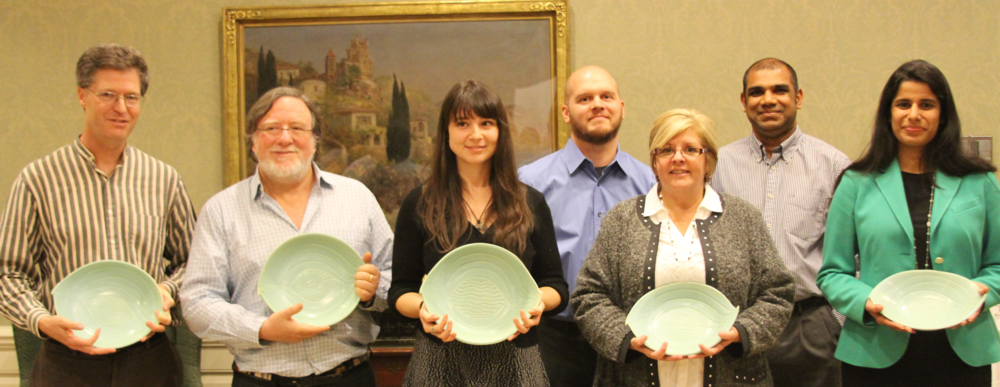Courses
I teach three courses at the O’Neill School - A graduate and undergraduate version of Human Behavior and Energy Consumption, an undergraduate course on Environment and People, and a graduate overview course on Energy Systems in Transition.
Human Behavior and Energy Consumption (HBEC)
Why don’t we conserve energy and use energy efficient technologies to decrease our energy use? We face a multitude of barriers related to informational and motivational deficits that prevent us from conserving energy. This course is aimed at understanding which behaviors to change and how to change behaviors independent of top down regulations. Students taking this course will (1) understand the nature of energy, (2) understand and analyze which behaviors to change, (3) understand how to change behavior, and (4) create solutions based on the tools provided in class to facilitate a decrease in energy use.
This class is project-focused and designed around active learning. You will be placed into groups of 4-5 students and will need to transform a behavior of your choosing. The course goal is that:
Students will apply psychological/behavioral methods to individual energy consumption behaviors to facilitate a decrease in energy consumption per capita, and in doing so, become change agents themselves.
Final project YouTube videos:
2021
2019
2017
2016
2015
2014
2013
2012
“Dr. Attari sets an outstanding example for what excellence in teaching and sustainability leadership represent. While her rigorous, discussion-based course gives students hope that individual actions do have the potential to influence the health of our planet and our social and economic systems for the better, it also challenges students to reach deeper, demonstrating the psychological and structural barriers to foster widespread shifts toward sustainability.””
Shahzeen received the Excellence in Teaching Award after being nominated by a former student in her Human Behavior and Energy Consumption (HBEC) course.
Environment and People
Environment and People is an introductory course that examines how humans interact with their environment. This course covers multiple topics, centered-around human dimensions of environmental change. The overarching objective is to develop an understanding of our impact on the planet and possible solutions to environmental degradation. Our emphasis during the course will be on understanding how our social and economic systems affect (a) the environment and (b) the way we make decisions concerning the environment. This course is designed to expose students to a breadth of topics where people and environment intersect.
In every one of these topics, I expect students to answer the following questions:
– What is the nature of the human-environment interaction?
– Who are the stakeholders involved?
– What should be done, and why?
– What are the benefits and costs of implementing a policy change?
– What are the repercussions?
– How are the benefits and costs spread among the stakeholders (think through from both sides of the issue on this, benefits for one stakeholder may incur costs for another)?
– Will the expected outcome produce the desired results?
– Will the expected outcome be fair?
– If not, are there other policy changes that would lead to more optimal and fair outcomes?
These questions usually do not have “correct” answers. These questions are designed to make you think critically about different aspects of each problem at hand.
“Leader for the Greater Good””
Energy Systems in Transition
This is a graduate level highly interdisciplinary overview course that introduces the basic elements of energy and energy systems. We will learn about energy sources, how they work, and how the nature of sources shapes their roles within the energy sector. We will have a few guest lectures throughout the course to learn about different perspectives about energy systems.
The course goal: Students will acquire the ability to think and write critically about energy systems and energy transitions. Students will gain a level of familiarity with the complex problems associated with energy use to understand how to begin solving the challenges related to decarbonization.
